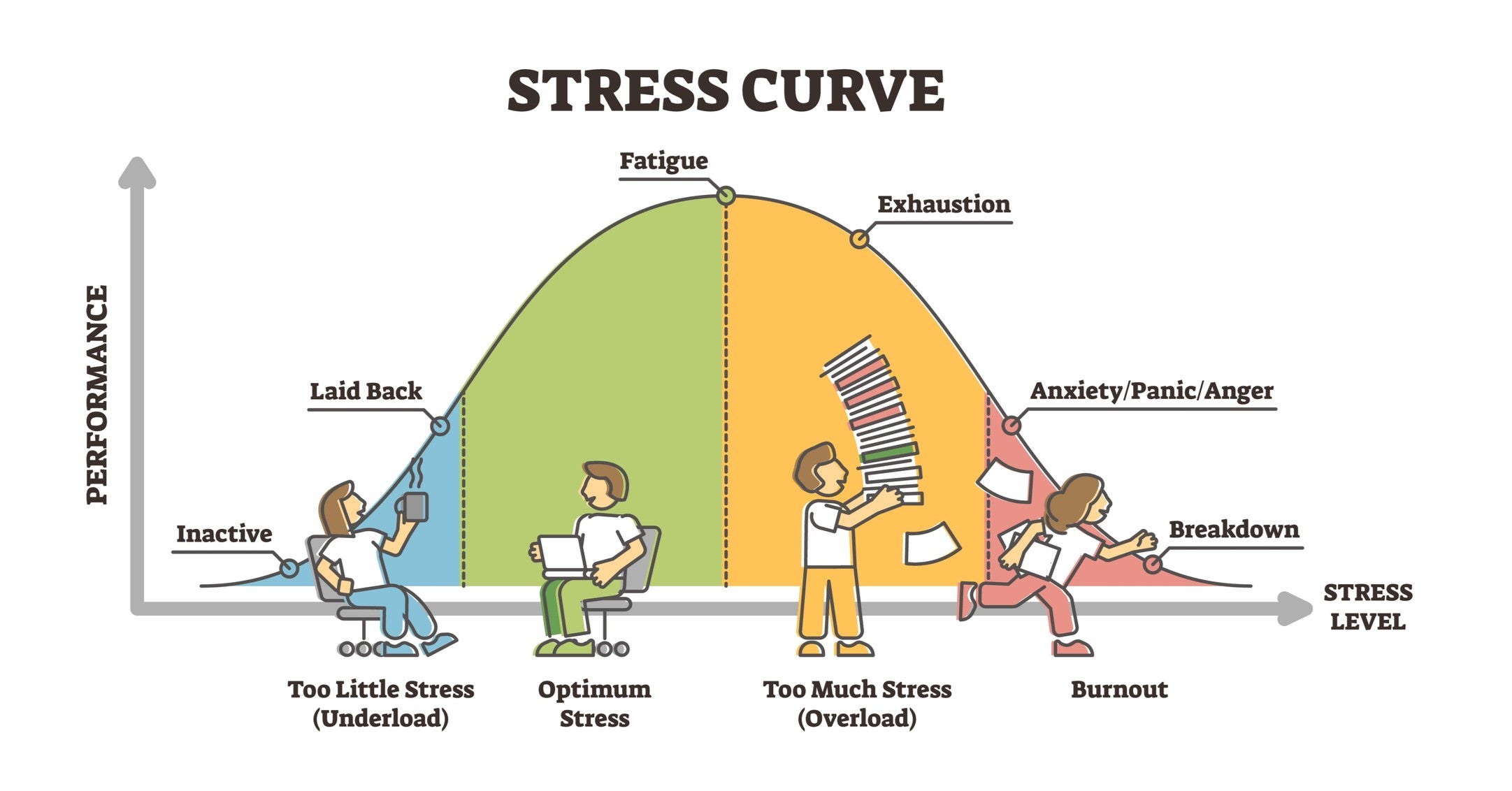As anyone who has ever taken on a compliance role knows, it is not a job for the thin-skinned or faint of heart. The job is — and always will be — demanding.
Compliance professionals of all stripes are tasked with mastering complex and ever-changing legal and ethical requirements, building and sustaining effective internal controls, reporting to executive management and directors, and conducting investigations and developing and administering training programs — all the while striving to win colleagues’ hearts and minds. These challenges are frequently compounded by tight budgets, staffing shortages, corporate politics, and hostility from colleagues in other corporate functions who question the need for a compliance department.
So, it’s no surprise that a recent research study published by Corporate Compliance Insights, Compliance Officer Working Conditions, Stress & Mental Health, found that many compliance professionals are at least a bit stressed out. Specifically, the study found that:
More than half of compliance officers say they’re burned out at work.
Of those who experienced symptoms of anxiety or depression in the past year, over half say they were work related.
The general pace of changing regulations tops the list of stressors.
Nearly half consider the threat of personal liability to be a significant stressor.
Almost 40 percent say they lack the support, respect, or resources they need to do their job effectively.
According to the study, 23 percent of respondents said they experienced difficulties relating to depression in the past 12 months and the majority of them reported their job played a large role in the depression.
Although work-related stress and anxiety is a malady shared by many corporate executives, the study’s findings are troubling. And I must confess I’ve experienced this brand of emotional anguish myself.
I recall many mornings when I would park my car in the company lot and literally take
deep breaths and psych myself up by saying to myself, “OK, get in there and help
these people out!”
For nearly 30 years I’ve worked as corporate counsel and a compliance professional. During this time, I’ve encountered many circumstances that drove me up to and, occasionally, over the edge.
I have a vivid recollection of the tension in the room as a CEO snapped through the pages of a report I prepared for our board of directors that detailed significant shortcomings in our company’s key internal controls. There was also the time another CEO investigated me for not pursuing a potential antitrust risk as aggressively as he thought I should. I survived the ordeal because the investigation revealed no misconduct or dereliction of duty but, as my family’s sole bread winner, it was a very difficult experience.
At another company, I had the “pleasure” of working for a passive-aggressive CEO who would green light a program one day and angrily reverse course two months later after significant resources had been committed and the program had been launched. Work at that company was particularly challenging because my team and I had to fight and claw for every inch of ground we gained. Everything was 10 times harder than it need to be. But we gritted our teeth and never stopped working to “advance the ball.” I recall many mornings when I would park my car in the company lot and literally take deep breaths and psych myself up by saying to myself, “OK, get in there and help these people out!”
Like the majority of compliance professionals, these experiences, and many more like them, caused me significant anxiety on occasion and I suffered all the associated adverse effects of that bane of the human condition – sleepless nights, strained marriage, unhappiness, and depression.
... Although we can’t control events that impact us, we can control
our reaction to them.
However, I’m happy to report that over the years, I’ve found effective strategies to reduce my anxiety even in the face of significant challenges at work and at home. These strategies are no silver bullet, and they all require a significant, long-term commitment to achieve. But I share them here in the hopes that they may help provide some relief from the mental anguish that, according to the study, is so commonplace in our profession.
Believe that you have the power
Ten years ago, I took a very intense, nine-month leadership course that changed my life. That course helped me understand that, although we can’t control events that impact us, we can control our reaction to them. It is possible to remain calm and maintain our mental equilibrium even in the face of significant hardships.
Just as a crying infant ultimately learns to calm down without being coddled, with a concerted effort, we can learn to remain calm and at peace regardless of what the workplace or our lives throws at us. For me, this big idea was the beginning of a journey to greater resilience and better mental health. Over the years, I’ve found that even a modest reduction in my emotional reactivity to workplace challenges has yielded a significant improvement in my quality of life.
Do the basics
One time in my career, I was so stressed, I sought the counsel of a psychologist. At the time, I had started a new job, was moving my young family across the country, building a new house, and engaged in local politics to prevent a big box store from moving into our little village. After sharing these challenges with the shrink he told me I was “normal.” He explained that each of one of these stressors could drive a person to the brink and that my reaction to their cumulative effects was to be expected.

His advice was to work through the challenges while continuing to do the basics: Maintain a good nutritious diet, exercise regularly, and get a minimum of eight hours of sleep every night. Of course, this is easier said than done when working 60- to 80-hour weeks, but I took his advice and it helped, and continues to help enormously.
I’ve found that there is nothing like a good, solid workout to clear my head and improve my brain chemistry. In fact, I’m heading out now for a run right after finishing this article.
Broaden your perspective
Work consumes a significant fraction of our lives, and we count very heavily on our paychecks to put food on the table and a roof over our heads. So, it is easy for our thoughts to nucleate on our work and forget the importance of everything else of value in our lives — family, friends, sports, hobbies, music, etc. Often when I get stressed about my work, I strive to broaden my perspective by taking into account, and being grateful for, all of the other important things in my life outside of work.
Meditate
At first, I found it almost unbearable to sit still for even 10 minutes to meditate with the object of becoming more self-aware and learning to better manage the “weather between my ears.” In the years that followed, I found great benefit from practicing guided mindful meditation. We all have very busy minds that wander off and flit from one thought to another. Developing the subtle skill of recognizing when that is happening and bringing yourself back to the present moment is foundational to learning to self-regulate and better cope with stressful situations.

There is no quick fix to relieve us from work-related anxiety — or any other stress-related anxiety in our lives. But my hope is that some of the strategies outlined above that have helped me will help you cope better with the daily challenges of being a compliance professional.




